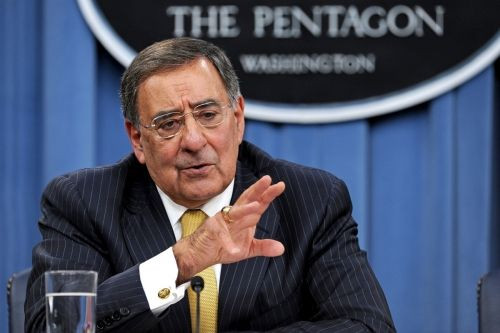U.S. Military Cuts Ahead, Retiree Benefits on the Table

Military retiree benefits are vulnerable as Congress pushes to reduce federal deficits and the Pentagon may begin cutting core programs such as weapons procurement, research, training and construction military officials and experts say, according to a report.
The Defense Department will be required to find about $900 billion in savings over the next 10 years if Congress fails to adopt deficit-reduction recommendations of a ‘super committee’ comprised of appointed members of Congress from both major U.S. parties.
Jack Lew, the White House Office of Management and Budget Director explained in August that if the bipartisan committee charged with reducing the federal deficit by an additional $1.5 trillion overall - including areas beyond defense spending – did not reach an agreement, a sequester would be triggered that would cut spending by $1.2 trillion.
“Half of this amount would come from defense spending,” he said. Lew explained that portion would encompass mostly the Department of Defense, and exclude other security related items.
“Make no mistake: the sequester is not meant to be policy. Rather, it is meant to be an unpalatable option that all parties want to avoid,” Lew said.
In the Times’ report, the “unpalatable option” that Congress is said to be seeking to avoid, may include those benefit reductions.
“Cuts that deep will almost certainly entail reducing personnel benefits for active and retired troops,” Pentagon officials and analysts told the New York Times in a report published Sunday.
Service members retiring after 20 years are currently guaranteed lifetime health insurance through the military’s system, according to the report. Service members retiring after 20 years of service could receive half their salaries as a pension for the rest of their lives, according to the report.
The report noted newly appointed Defense Secretary Leon Pannetta said in a recent interview with PBS that “we’ve got to put everything on the table.”
In the September 6 interview on the ‘Charlie Rose’ Program, the host of the program noted that Panetta could the “first secretary of defense who looks at shrinking the Defense Department budget.”
“How does that make your job?” Rose asked.
Panetta said the defense Department “is going to have to play a role in trying to achieve whatever savings we can achieve without undermining our national defense and our national strength. That’s going to be the challenge: How do I achieve savings? How do I try to implement efficiencies and at the same time make sure that we protect the strongest and finest military force in the world?”
Panetta noted Congress and President Obama had already approved an initial set of savings in the range of $400 billion over 12 years.
Panetta said the U.S. national defense would have to be “more agile,” and “more flexible,” allowing quick deployment of forces and having weaponry to assist with that. Other improvements would involve achieving better efficiencies and procurement.
Panetta also said simultaneously, “we’re going to have to protect o0ur commitment to the troops and their families because at the heart of our national defense is a volunteer force.
“So we’ve got to be able to do all of this without breaking faith with those that put their lives on the line ultimately and really are the ones who are the key to whether or not our defense system works or not,” he said.
When asked by the host if he would “draw the line at changing retirement benefits for members of the armed forces?” Panetta said nothing was off limits.
“You know, having been OMB (Office of Management and Budget) director and chairman of the Budget Committee in the Congress, I have always approached these issues by saying that we’ve got to put everything on the table. You’ve got to look at everything. I think that’s the way to do it.”
“Does it mean we have to break faith with troops and their families? No. I mean, I think there are ways to implement these reforms in the future that don’t break faith with people that have been deployed a number of times and that have depended on the benefits that we’ve provided to them. That’s important,” he said.
Panetta said that as with foreign defense secretaries, the “most common element” with troops is trust.
“rust that we are going to be there, that when we say we’re going to provide certain benefits, we’ll stick to it, that when we say we’re going to be able to not break faith with our troops or their families that we’ll stick to that, that we will care for them if they’re wounded, that we will be there for them because of what they’re doing to try to protect this country,” he said.
“So I would say that the most common -- the most common element I see, whether I’m talking to a defense minister or whether I’m talking to a trooper, is trust,” he said.
Published by Medicaldaily.com



























